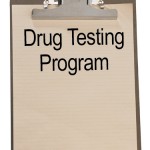By Cynthia McNabb
 Are you required to drug test in order to keep your job? In addition to drug testing, are you required to disclose what prescription medication you are taking and for what purpose? If you answered yes to any of these questions, a recent EEOC settlement reached, may be of interest to you.
Are you required to drug test in order to keep your job? In addition to drug testing, are you required to disclose what prescription medication you are taking and for what purpose? If you answered yes to any of these questions, a recent EEOC settlement reached, may be of interest to you.
In September 2012, the EEOC reached a consent decree with auto parts manufacturer Dura Automotive Systems requiring the employer to pay $750,000 to former and current employers for violations of the Americans with Disabilities Act (“ADA”) relating to allegations that the employer impermissibly required drug testing for all employees, including testing for prescription drug use and made improper employment decisions based on the results. The consent decree also required that the employer cease making medical inquiries and conducting medical examination that are prohibited by the ADA, stop drug-testing employees when those tests are not job-related or are not required as a business necessity, desist from disclosing confidential information obtained through medical inquiries; and implement a compliant drug-testing policy.
The unlawful conduct in question consisted of the employer testing all employees for drug use using a 12 substance panel that included testing for legal prescription medications that were lawfully prescribed to the employee.
For those employees who tested positive for prescription drugs for which they had a lawful prescription, the company required that those employees disclose the underlying medical conditions relating to the prescription drugs. In addition, the employer required employees to stop taking the medication, irrespective of proof that the prescription medication affected job performance. Employees were suspended until they stopped taking the medication or were fired if they were unable to work without taking the medication. Lastly, the EEOC found that the employer disclosed confidential medical information through the testing process by disclosing to the workforce the identity of the employees who tested positive.
Boiling this settlement and consent decree down to its basics, the EEOC found that the employer did not attempt to tailor its drug testing policy to the actual job requirements nor, when it suspended or fired employees who tested positive for certain prescription drugs, attempt to determine if those medications actually affected the individual’s job performance. This overbroad application of a drug testing policy violates the ADA as did the disclosure of confidential medical information to fellow employees.
Employees should know, the EEOC considers testing for prescription medication and asking employees if they are taking prescription medication to be a medical inquiry under the EEOC Guidance on Disability-Related Inquiries and Medical Examination of Employees. Medical examinations and inquiries that are not “job-related and consistent with business necessity” are, in many instances, illegal.
Any employee who is required to undergo a drug testing exam prior to being hired or as a condition of continued employment are advised to look closely at what is included in the drug testing panel. While employers may craft a drug-testing policy that prohibits some prescription drug use, those prohibitions must be narrowly-focused to the actual job requirements. In addition, with this settlement and the EEOC movement toward enforcing ADA violations in the medical inquiry and examination arena, employers should not have a drug testing policy that universally prohibits classes of prescription medications without making a case-by-case assessment for each employee. If your employer has a general prohibition against certain medications that affect you, consultation with an attorney may be appropriate.



